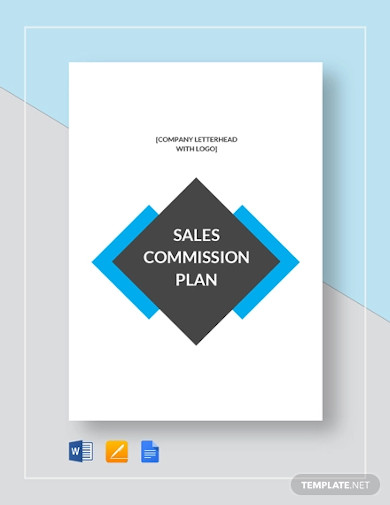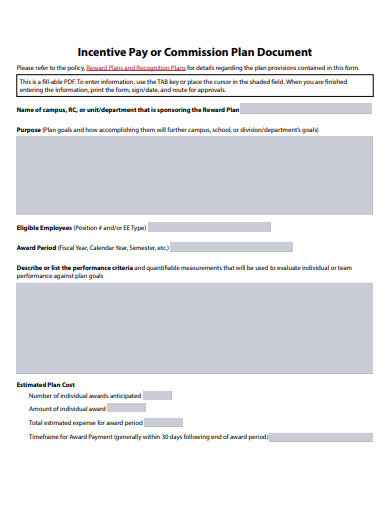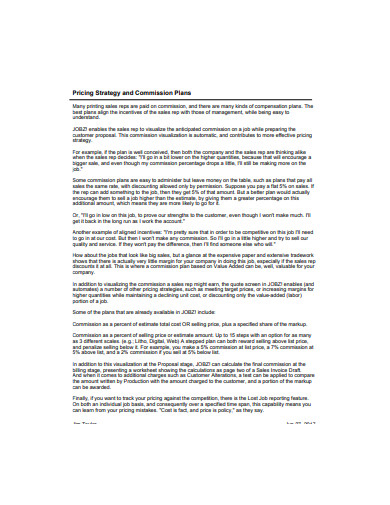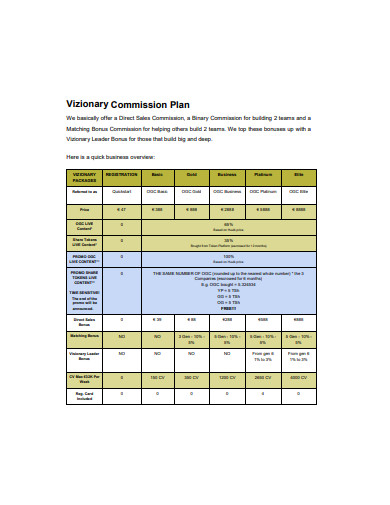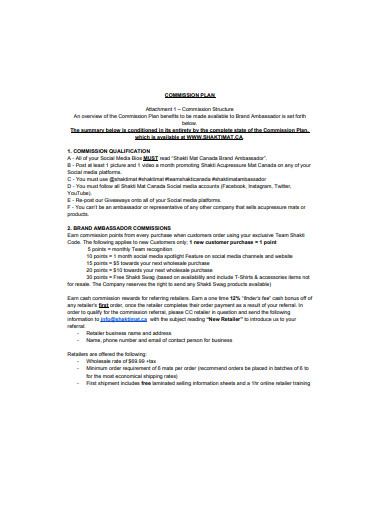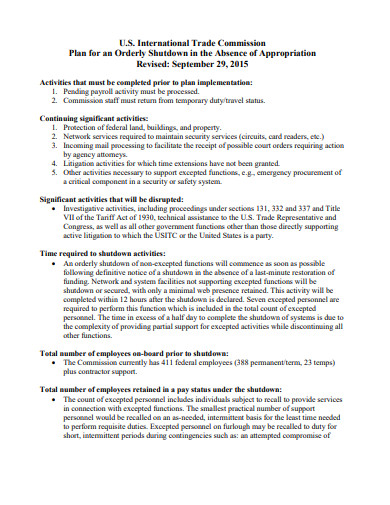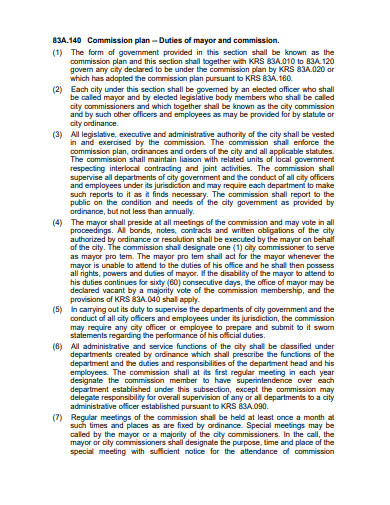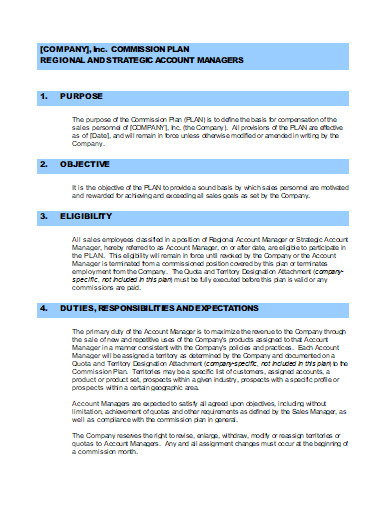8+ Commission Plan Examples to Download
Someone who does not engage with customers face-to-face may find the job of salesmen difficult. And probably, the salespeople think so too. The question is, what keeps them going? Surely, there are many factors that put them where they stand satisfactorily, like the working environment and the commission pay that they get for every successful sale made. Obviously, the latter is the selling point of becoming a seller. After all, employment is mostly about getting paid and more. So, take a step forward in making your sales and marketing workforce more effective through a commission plan. You can learn more about such a scheme as you read this article.
8+ Commission Plan Examples
1. Sales Commission Plan Template
2. Software Sales Commission Plan Template
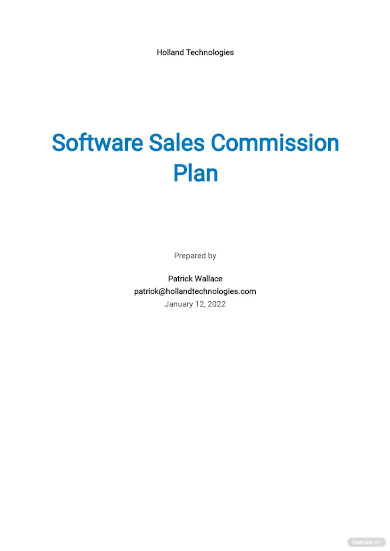
3. Commission Plan Example
4. Sample Commission Plan Example
5. Commission Plan Format
6. Basic Commission Plan Format
7. Commission Plan Sample
8. Simple Commission Plan
9. Commission Plan in DOC
What Is a Commission Plan?
A commission plan is a systematic structure intended to reward a company’s sales representatives for their exceptional efforts in vending products. Susan Heathfield mentioned in her 2019 article for The Balance Career that the base salary is in recognition of the fact that sales employees do not spend all of their time in direct marketing and selling. Moreover, she stated that a commission plan is a perfect tool to advance favorable behaviors in terms of sales. With all those statements, it is clear that creating one affects many business aspects, including sales and employee-employer relationships.
Sales Quota in a Commission Plan
A sales quota plays a significant role in a commission plan. It is the limitation on which a salesperson’s commission payments will be based. Salespeople whose performances go beyond the said limit become entitled to receive a share of the product payments. According to Susan Heathfield’s “How to Use Sales Commission to Motivate Employees,” sales quota can be both constructive and destructive. It is constructive in the sense that it encourages employees to sell more than they are capable of, and becomes detrimental if it has been set to an unrealistic measure.
How Do You Create a Concise Commission Plan?
When writing a formal business document, you have to include all aspects that must be taken into account. This goes especially to something that involves employee incentives, like a commission plan. And, missing even just a single point could severely cause a major confusion or frustration. Now, we understand how crucial a commission plan is to increase the morale of your sales employees, as well as to increase your company’s overall sales performance. Thus, we have prepared a complete walkthrough below that can guide you in making a document not just clearly and thoroughly, but also briefly and efficiently.
1. Know Sales Goals
Most business-related documents always start with their abstracts that briefly define their purposes, goals, activities, timelines, budgets, and more. Metaphorically, they are the documents’ windows that influence audiences to proceed reading or not. You already know the purpose of a commission plan, so it is time for you to make sure you have your sales goals right. Once identified, everything else follows in order.
2. Gather Pieces of Information
Composing a commission plan without knowing the much-needed pieces of information will most likely get you an unreliable output. You cannot and should not create a document based on your knowledge alone. You have to research the general standards, as well as your company’s sales history and specifications. In doing so, you allow yourself to become more knowledgeable, which is a useful trait for someone who is given the task to create a commission plan. To save you time, we suggest you look into some of the important areas, including employee compensations, commission payments, extra bonuses, and other monetary inducements.
3. Organize and Define Plan Details
Using every detail that you have learned in your research, start your composition process. Begin by setting out an outline of the areas that must be included according to standards. Right after that, write down the detailed points that you want to communicate with your target audience. In this step, you have to make sure that each point conforms with both standards and company provisions. Moreover, always remember to seek advice and help from your teammates.
4. Look Out for Errors and Copyedit
Once you have finished writing your commission plan, you should take the time to review it. This is so you can determine if there are grammatical errors, incorrect spellings, unnecessary items, and inaccurate information. These faults can make your commission plan ineffective in delivering what your company has planned to its certain group of executives or its salespeople. Also, you have to correct and eliminate them, respectively. Otherwise, your identification of the faults, as mentioned above, will be pointless.
FAQs
What are the different kinds of commission structures?
According to Sujan Patel, in his article for the blog site, Mailshake Blog, there are seven commission structures. These include 100% Commission, Base Salary + Commission, Revenue Commission, Gross Margin Commission Model, Commission Draw, Tiered Commission, and Base Rate Only.
What are the advantages of commission-based pay?
For employees, commission-based payments drive them to go the extra mile in selling products. They get their compensation according to the efforts they put in. Therefore, the more products they can sell, the higher pay they get. On the employers’ point-of-view, commission-based payments ensure high sales performance. Thus, it improves their businesses’ cash flows.
What are some jobs with commission-based compensations?
The most common jobs that are paid through commission are stockbrokers, real estate agents, and insurance sales agents. Typically, professionals who are involved in these career paths are experts in selling. Aside from that, most of them work independently.
Many entrepreneurs and employees have experienced the benefits that commissions bring. And, it takes a great plan to reassure the two groups of their profitability. Through commission plans, individuals and organizations are given a chance to appropriately choose the kind of structure their personal and companies’ financial stand is going to need. Furthermore, they help both groups in getting an overview of their financial undertaking, including the sales goals, as well as their corresponding strategies and activities. Thus, it is safe to say that a commission plan is an essential component of the salespeople’s success.



